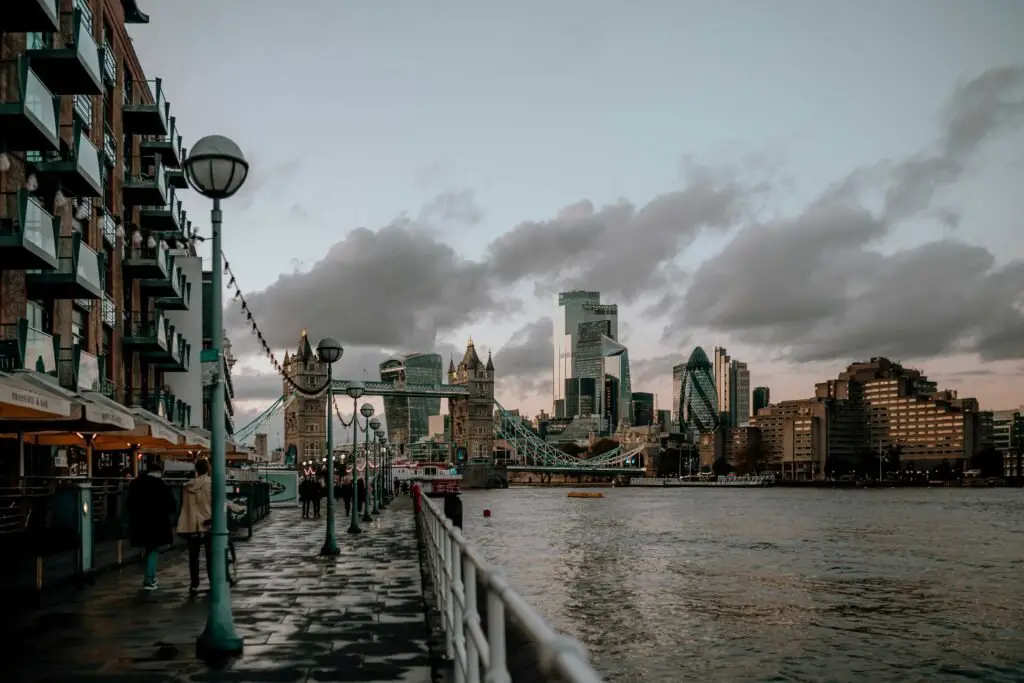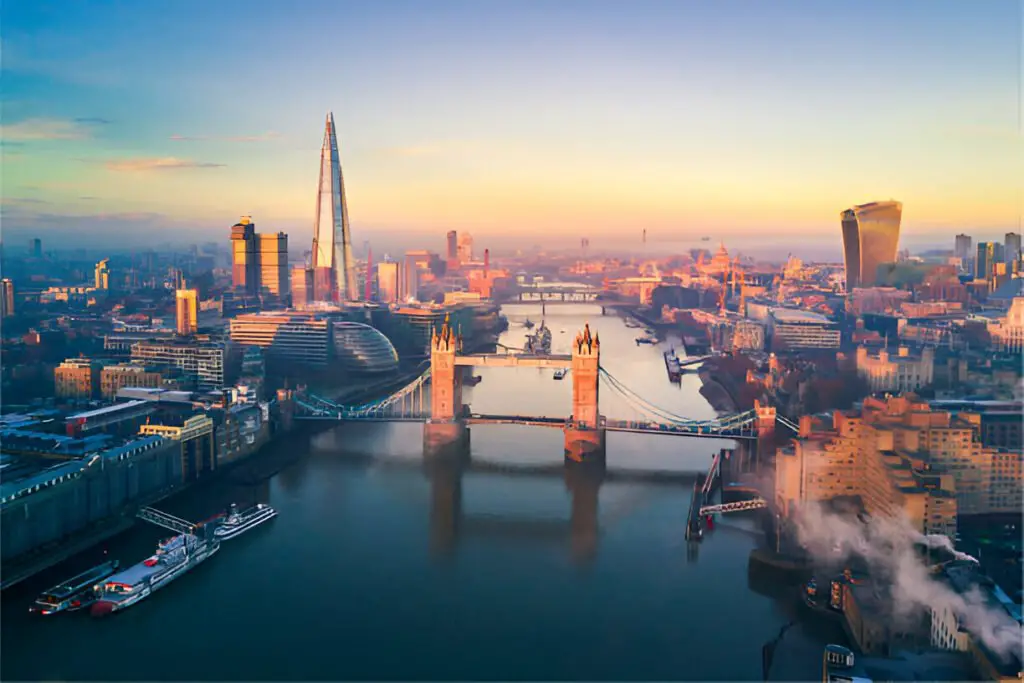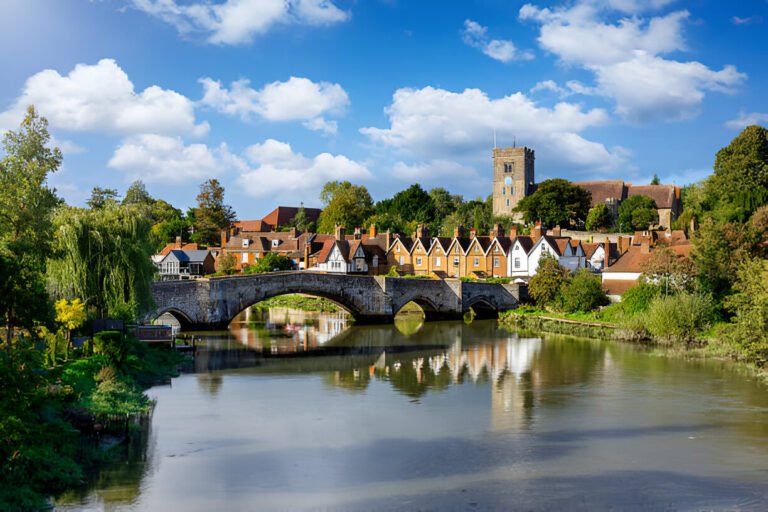How deep is the Thames river: Everything You Need to Know
The River Thames, an iconic watercourse winding its way across England, serves as a symbolic representation of its nation. In this piece, its depths are explored from source to sea with tourists taking boat tours on this historic river to experience it first hand. Furthermore, questions regarding width and depth in feet are addressed as well as addressing any questions that might arise related to tourism on its banks.
Table of Contents:
- The Humble Beginnings of the Thames
- From Trickle to River: The Thames Gains Strength
- London Calling: The Heart of the Thames
- How Deep is the River Thames in London? A Tale of Two Cities
- Beyond London: The Broader Thames and the Estuary
- How Wide is the River Thames? A River of Contrasts
- The Intricate Dance of Depth and Width: A Balancing Act
- The Ever-Changing Thames: A River Full of Surprises
- A River Rich in History and Ecology
- Conservation Efforts: Safeguarding the Depths of the Thames
- The Future of the Thames: A River for Generations to Come

The Humble Beginnings of the Thames
The Thames’ origins can be described as modest. Instead of starting as large glacial rivers do, the Thames begins as a small stream in Kemble in Cotswolds; an area famed for its picturesque green hills. At this point in its journey downstream it’s known as Thames Head; here it’s called an insignificant stream compared to what lies ahead!
From Trickle to River: The Thames Gains Strength
As it travels south, the Thames collects water from various streams and tributaries. The River Coln, the River Leach, and the River Windrush are some of the contributors to its growing size. Upon reaching Oxford, the Thames becomes more than just a small stream, earning the name the Isis. This stretch of the river is famous for punting, a leisurely activity involving flat-bottomed boats propelled by poles.
Best Amazon Deals
London Calling: The Heart of the Thames
London’s River Thames is at its best in the city. It becomes a lively waterway, bustling with activity. Tower Bridge and famous landmarks such as the Houses of Parliament and the London Eye proudly adorn its banks. The Port of London, once a center of global trade, continues to thrive, showcasing the river’s historical and economic significance.

How Deep is the River Thames in London? A Tale of Two Cities
The depth of the Thames in London varies considerably. The Thames in central London is surprisingly shallow compared to other rivers. For example, at London Bridge, the depth is only about 1.5 meters (5 feet). This is because of the tidal influence, which makes the water level change during the day. High tide brings deeper water, while low tide exposes the riverbed in certain spots.
Beyond London: The Broader Thames and the Estuary
As the Thames moves eastward, it widens after departing London. It transforms into a broad estuary where freshwater and saltwater blend from the North Sea. The riverbed deepens notably in this part, with an estimated maximum depth of about 20 meters (66 feet).
How Wide is the River Thames? A River of Contrasts
The Thames’ width is equally captivating to its depth. At first, its width in London’s core area measures only 250 meters (820 feet), stretching between Teddington and London Bridge and roughly 250 meters to 750 meters (2,460 feet). As it moves toward the sea however, its width widens considerably as its estuary widens to an incredible 18 kilometers (11 miles). Before meeting up with North Sea.




Buy this cool T-shirt
The Intricate Dance of Depth and Width: A Balancing Act
The depth and width of the Thames are intertwined. While a wider riverbed typically results in greater depth, this isn’t always true. In central London, the river channel is narrow and shallow due to frequent dredging for shipping. On the other hand, the wider estuary permits a larger volume of water, leading to increased depth in specific areas.
The Ever-Changing Thames: A River Full of Surprises
The depth of the Thames is always changing because it is affected by tides, rainfall, and human activity. When it rains a lot, the river gets deeper. But when it’s dry, the water level goes down and we can see more of the riverbed. The tides also make a difference, with high tide making the water deeper and low tide showing the shallow parts of the river.
History and culture Go Together
The John Rylands Library
John Rylands Library in Manchester is an absolute must for architecture and history enthusiasts, boasting exquisite neogothic architectural beauty on Deansgate. Opened as a memorial to successful Manchester industrialist John Rylands by Enriqueta Rylands in 1900, its impressive neogothic beauty can be enjoyed freely – not forgetting its beautiful stonework, historical artifacts, stained-glass windows etc!
A River Rich in History and Ecology
The different depths of the Thames have had a big impact on its history and nature. The shallow parts in London were good for early settlements and helped with trade. The deeper parts of the estuary allowed big ships to sail through, making the Thames important for business. The riverbed is also home to many different types of aquatic life, with different species living in different depths and water flow.
Conservation Efforts: Safeguarding the Depths of the Thames
Pollutants from urban runoff, industrial waste disposal and agricultural activities pose an immediate danger to the delicate ecosystem and health of River Thames. Dredging can further threaten its ecosystem as shipping lanes require cutting into its bed to accommodate ship traffic – further impacting aquatic habitats that sustain its health.
The depths of the Thames are being protected through effective conservation measures:
- Water quality monitoring: Monitoring water quality regularly is important for finding and fixing pollution problems. Strict rules and better waste management are key to lowering pollution.
- Habitat restoration: There are initiatives to revive natural habitats by the river and ocean. This involves establishing breeding areas for fish and planting water plants to support a variety of species.
- Sustainable dredging: Sustainable dredging practices help reduce harm to the riverbed. Methods such as selective dredging and utilizing dredged material for habitat development are being investigated.
Public awareness: Public awareness must be raised regarding the Thames and its risks. Through education programs and community involvement, we can promote responsible behavior among river-goers while motivating them to protect it.
The Future of the Thames: A River for Generations to Come
The Thames River is essential to life, history, and business alike. Being aware of its depths and the influences affecting them are critical components in conserving its waters for future generations. By adopting effective conservation strategies that promote shared responsibility we can protect its future for many decades to come.
Beyond the Numbers: Experiencing the River Thames
Although the depth of the Thames is fascinating, its true essence lies in its ability to connect people and nature. Here are some ways to truly experience the River Thames, going beyond a mere understanding of its depths:
- Cruising the Thames: Enjoy a boat ride to admire the beauty of the river and famous sights from a different view.
- Walking or cycling along the Thames Path: Experience the wonders of the Thames Path, a scenic trail that meanders along the river, showcasing awe-inspiring panoramas and moments to embrace the outdoors.
- Participating in water sports: You can enjoy the river firsthand by kayaking, paddleboarding, or swimming in designated areas.
- Visiting historical landmarks: Discover the historical landmarks along the riverbanks, ranging from grand palaces such as Hampton Court to renowned museums like the National Maritime Museum.
The River Thames is an exquisite watercourse full of wonder to discover and admire. By exploring its depths, appreciating its historical and ecological importance and taking steps to safeguard it we can ensure this majestic watercourse remains an awe-inspiring source of fascination for generations to come.
Check out this article- Best Shops in Harrogate.
FAQ:
What is the source of the River Thames?
The River Thames originates from a series of springs near the village of Kemble in the Cotswolds, England. This area is known for its rolling green hills.
How deep is the River Thames in London?
The Thames in central London is surprisingly shallow, with a depth of only around 1.5 meters (5 feet) at London Bridge. This is due to a combination of factors, including tidal influence and dredging to maintain a navigable depth for commercial shipping.
What is the deepest part of the River Thames?
The deepest section of the Thames is estimated to be around 20 meters (66 feet) deep. This is found in the Thames estuary, the wider area where the river meets the North Sea.
How wide is the River Thames?
The width of the Thames varies considerably. In central London, it ranges from 250 meters (820 feet) to 750 meters (2,460 feet). The Thames estuary widens dramatically, reaching a staggering 18 kilometers (11 miles) wide at its mouth.
What factors affect the depth of the River Thames?
The depth of the Thames is influenced by various factors, such as tides, rainfall, and human activity. Throughout the day, the water level fluctuates due to tides, with high tide bringing in deeper water and low tide exposing the riverbed. The depth can also be affected by heavy rainfall, which increases it, while dry spells can result in lower water levels. Additionally, dredging activities carried out to maintain shipping lanes also contribute to shaping the riverbed.







